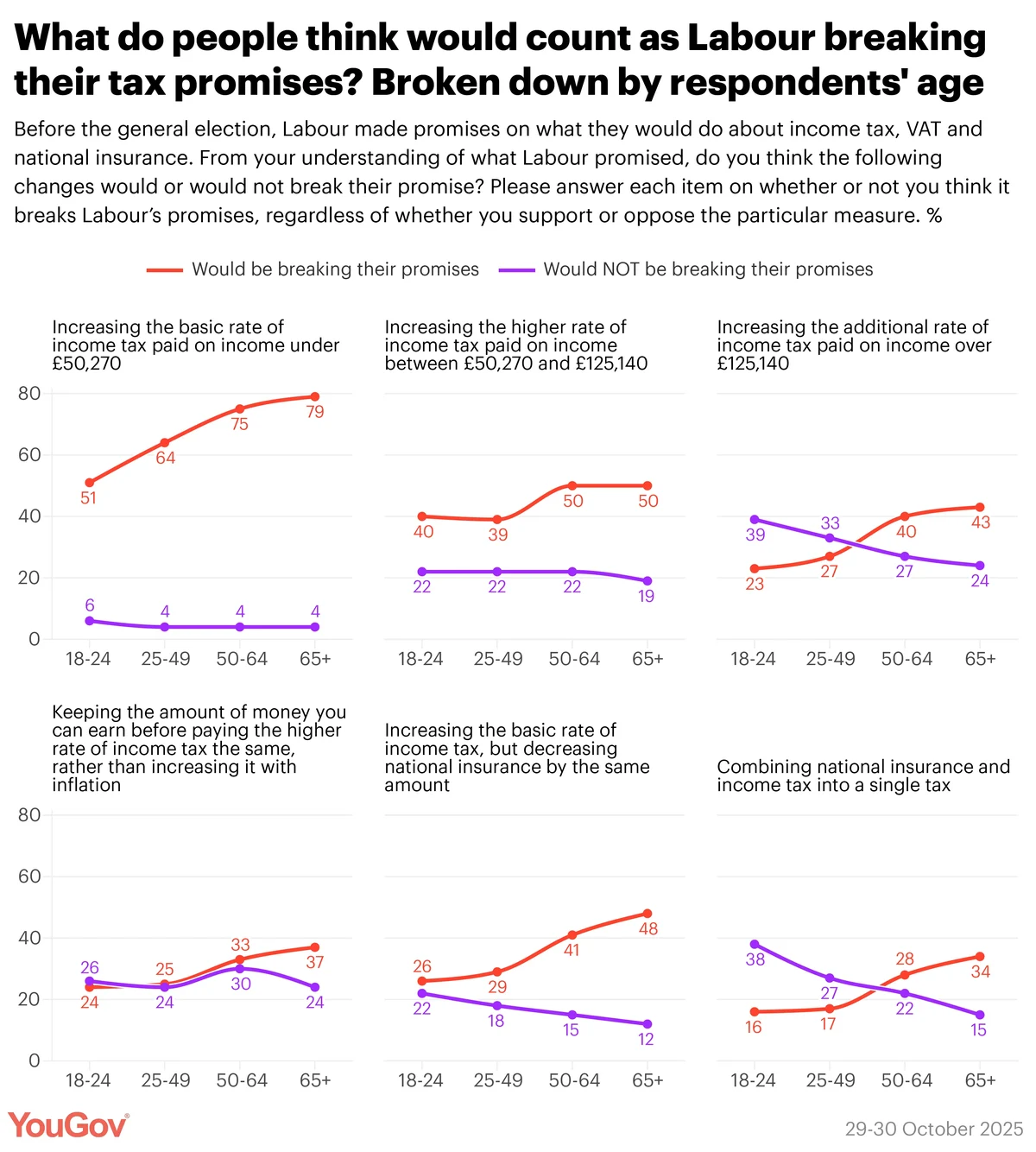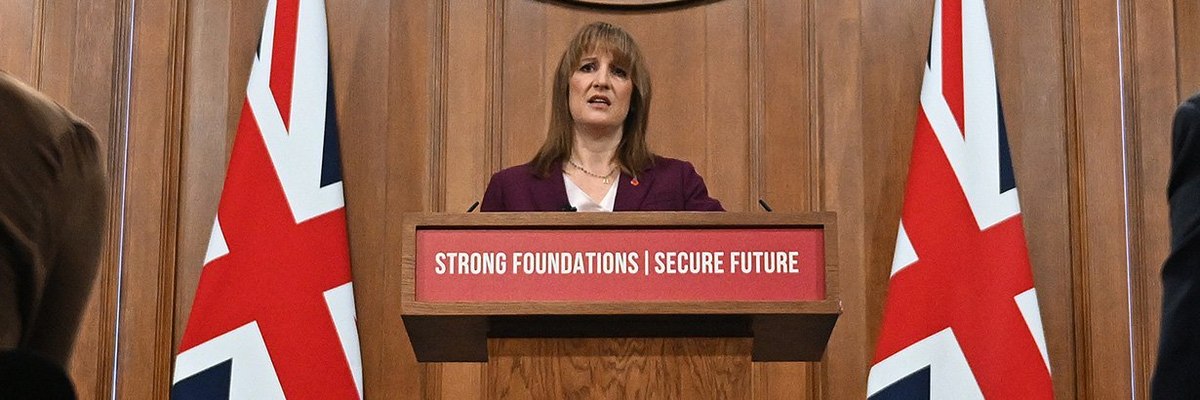Labour voters tend to say raising additional tax rate wouldn’t be a breach of election pledges
Key takeaways
- Large majority of Britons say raising basic rate of income tax would be a broken promise
- By 45% to 21% Britons say the same of increasing the higher rate of tax
- Few see any tax proposals promised as in staying within the bounds of Labour’s election promises, although “don’t know” levels are high
- Labour voters say raising tax on the richest doesn’t break their 2024 pledges
- Richer Britons disagree
Rachel Reeves’s speech this morning saw her pressed repeatedly by reported on whether she would raise income tax at the coming Budget – something which the majority of Britons believe is going to happen.
Labour has previously leaned heavily on the ‘working people’ aspect of their election pledge to “not increase taxes on working people”, which explains why there appears to have been an attempt by the Treasury to define working people as only those earning up to £45,000 a year. In doing so, the logic clearly goes, then the government can increase taxes on those earning more than £45,000 while still saying that it has kept its promises.
A new YouGov survey tests whether the public look likely to agree.
Based on the explicit wording of the Labour election manifesto pledge – “not increase taxes on working people, which is why we will not increase National Insurance, the basic, higher, or additional rates of Income Tax, or VAT” – we asked the public whether increasing taxes in each of these bands would constitute a broken promise. We also included other proposals that Labour similarly appear to think might allow them to say they have stuck to their manifesto pledge.
The results show that fully 69% of Britons say that raising the rate of income tax paid on earnings below £50,270 –i.e. the basic rate of tax, and a level which obviously includes some of those who would be paying more under the Treasury ‘working people’ semantics – would amount to the party breaking their promises.
While this figure falls to 45% when applied to increasing the higher rate of income tax, only 21% say that this would represent Labour not breaking their promises. When it comes to the additional rate of tax – paid on incomes of more than £125,000, the public are divided, with 30% saying it does not represent a broken promise but 34% saying it does.
It is worth noting that relatively high numbers of people (27-36%) answered “don’t know” to these questions, and this is even more the case for the alternative proposals for adjusting tax rules that have been trailed in the papers.
On the proposal to increase the basic rate of income tax, but decrease National Insurance by the same amount, 36% of Britons say that this would be a breach of Labour’s manifesto, compared to 16% who disagree.
The public are much more evenly divided on freezing the lower threshold for the higher tax bracket, with 30% saying that would amount to a broken promise but 26% disagreeing, while combining national insurance and income tax into a single tax perfectly splits opinion, with 24% on either side.
When it comes to those voters who backed the government last year, there is more willingness to see these measures as technically within the spirit of Labour’s promises. This is particularly the case when it comes to raising tax on the highest earners, which 46% of 2024 Labour voters say would not be a broken promise.
Labour voters are split 33-36% on increasing the higher income tax rate, however, and resolutely consider raising the basic rate of income tax to be a breach of Labour’s campaign pledges (68%).
Unsurprisingly we see greater opposition to increasing the higher and additional rates of income tax from those who are actually likely to pay them. For example, while 41-45% of those in personal income groups below £50,000 a year say that raising the higher rate of tax would constitute a broken promise on Labour’s part, this increases substantially to 58% of those making between £50,000 and £70,000, and to 65% among those earning £70,000 a year or more.
And among those earning at least £70,000 a year, 52% say raising the additional (top) rate of tax would be a broken promise, compared to 32-39% among people on lower incomes than this.
Older Britons are more inclined to describe each of the measures as constituting a broken promise. However, in many of these cases this is more because younger Britons are more likely to answer “don’t know”.
Where differences appear to be more substantive are with the additional rate of income tax (which younger people say can be raised without breaking pledges, while older people disagree), and the proposals that involve changing both income tax and National Insurance at the same time, presumably because pensioners currently don’t have to pay the latter.

Interested in commissioning YouGov research? We connect in real-time with real people around the world to gather their thoughts, behaviours, and opinions, to ensure that our research data is powered by reality. Explore our survey services here.
Interested in taking YouGov surveys? What do you think about representation in advertising, diversity matters more broadly, and everything else? Have your say, join the YouGov panel, and get paid to share your thoughts. Sign up here.
Photo: Getty






